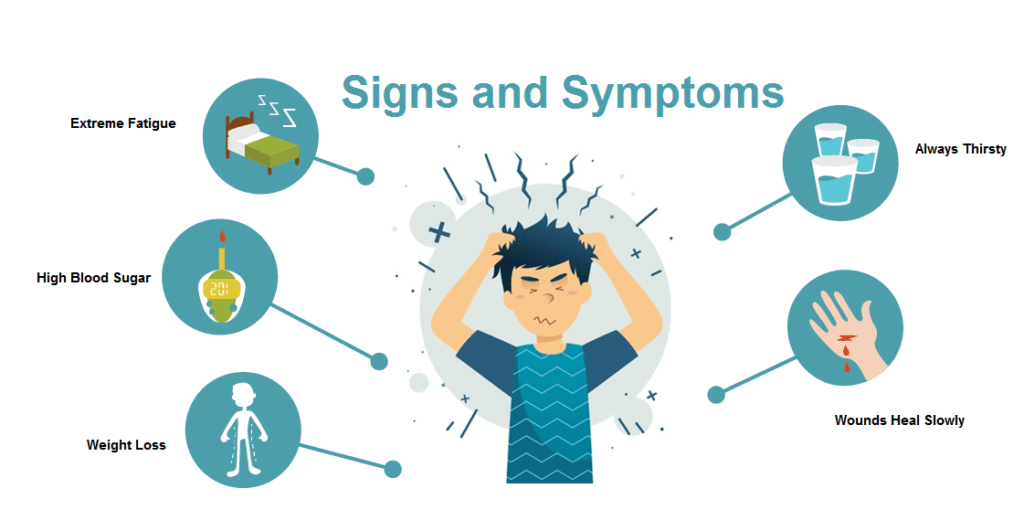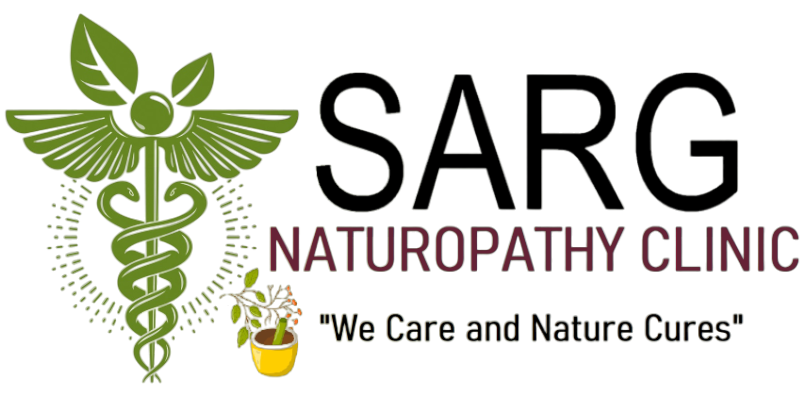Diabetes and the 8 effective measures for its management

Diabetes refers to a clinical syndrome in which there is an increase in plasma blood glucose concentration. This may be due to defects in insulin secretion or defective insulin action or sometimes a combination of both. In INDIA over the years there has been an exponential increase in the number of people who suffer from Diabetes, the total number of known cases is approximately 77 million and counting.
Diabetes is associated with a greater range of disorders in the long run such as Eyes, Nerves, Heart, Kidney, and Blood vessels which manifest as damage, dysfunction, or an altogether failure of these organs.
The multi-factorial nature of this disease makes it difficult to comprehend in the long run and dealing with the challenges a patient may present with many times results in serious complications and can even result in death.
Prolonged High Blood Sugar levels may result in serious complications such as Impairment of cognitive functions, Permanent damage to nerves; ulcers at peripheries especially lower limbs, Cardiovascular Diseases with an increased chance of getting a Heart attack, and also stroke.
Diabetes can be differentiated into several categories but clinically a patient does not always fall into a single category or type.
Different types of Diabetes and their causes
Based on different pathologies and an added contribution from poor lifestyle choices, Stress, Drugs and chemicals, infections, and several conditions such as Pregnancy can result in Diabetes
Broadly they can be classified as:
TYPE-1 Diabetes Mellitus
Also referred to as “INSULIN DEPENDENT DIABETES MELLITUS” This type of diabetes is found in nearly 5-10% of cases, which is linked with autoimmune destruction of β-cells of the pancreas which results in a complete deficiency, in this case, the person is dependent upon artificial insulin being substituted from outside in injectable forms. In recent years pancreatic transplantations have also emerged as an option to combat this condition.
TYPE-2 Diabetes Mellitus
A major proportion of diabetics about 80-90%cases fall into this group. This type of Diabetes results from an increased resistance to insulin with a relative fall in insulin or its deficiency. Several diseases and disorders such as dyslipidemia, Hypertension, and polycystic ovarian disease in women are found associated. The presence of Non-alcoholic fatty liver is also common due to increased Low-density lipoprotein and triglycerides.
Gestational Diabetes Mellitus

This usually occurs during pregnancy but often resolves once the pregnancy is completed. But in some cases even after delivery disturbance in blood sugar levels can still be observed post-pregnancy which needs to be managed properly.
Other types of Diabetes
This includes diabetes which may results from Genetic causes or conditions such as trauma, infections, Pancreatitis or carcinoma which significantly reduces the amount of β-cells.
Also, several drugs and chemicals contribute significantly to increased insulin resistance these drugs include thiazides, Steroids, Nicotinic acid, Phenytoin, Glucocorticoids, and Thyroid Hormones usually prescribed in Thyroid disorders.
Signs and Symptoms of Diabetes

There is a cascade of alarming symptoms which occurs when a person suffers from Diabetes mellitus
- Excessive urination
- The person may feel excessively thirsty
- Also, there is an increased appetite with no significant weight gain despite eating very much, even in several cases, severe weight loss becomes the major concern regardless of increased appetite.
- Burning sensation in feet, pain, and numbness in legs is also commonly seen
- The person may suffer from anemia
- Intense itching around the genitals is also seen in several cases
- Generalized weakness and fatigue is common in nearly everyone who has Diabetes
- Sexual Dysfunctions are also evident in people with Diabetes
8 effective ways for Diabetes management
1. Diet

Diet plays a crucial role when we talk about Diabetes management. Usually Low calorie, the low fat, alkaline diet should be followed. Fruits, vegetables, nuts, and low-fat Dairy products should be included in the diet. Starchy foods should be strictly restricted from the diet.
Following a Paleolithic diet is also a great option you can get a dietician or can also contact us in getting your diet mastered according to your needs.
2. Avoid Emotional Eating
Eating during a emotional state leads to unhealthy food choices. this often triggers inflammatory pathways and lead to elevated blood glucose as well as can trigger anxiety and stress.
3. Make Food choices which are Low on the Glycaemic index
Food with Low Glycemic index produce very low spike in blood sugar levels and those are preferable choices for a person suffering from Diabetes.
4. Try Fasting under the Supervision of a Naturopathy Physician
Fasting is a great alternative for diabetes, when preparing for a fast the patient is put on a diet rich in fats to induce the state of keto-adaptation decreasing the chances of hypoglycemia and reducing the related symptoms. This Diet is for about 2 weeks and contains organic fat sources after the diet the person is shifted to fasting either on Juices or on water depending upon therapeutic goals to be achieved and accordingly the Duration of the fast is decided, usually juices low on carbohydrates are considered for fasting.
Acupuncture is a great option for patients suffering from diabetes
5. Go for a full-body massage

Massage helps in reducing anxiety and stress and offers complete relaxation research also says that it helps in improving Glycaemic control. Due to its strong circulatory, it reduces several complications such as neuropathy.
6. Take Sun Bath Daily
Take a Sun Bath for 15-20 min Daily- sitting under sunlight for 15-20 min in the early morning is very helpful in the synthesis of vitamin D in the body. Vitamin D is also among the factors which are proven to be protective against Diabetes.
7. Try Hydrotherapy to ease your symptoms and reduce associated complications
A hot immersion bath in a tub can help in relieving symptoms, as well as help, improve blood circulation. Also improves glucose uptake through Insulin
Cold percussion Douche can help in reducing blood sugar, You can get this administered in a naturopathy hospital
Cold immersion bath with head out of the tub for 3-4 times a week can significantly help in decreasing stress and anxiety decreasing
Gastro hepatic Pack can also be taken to improve blood circulation to the pancreas and thus improve its functioning and thus significantly reduce blood sugar.
Steam Bath should be taken once or twice a week for a short duration strict care should be observed if there are cardiac conditions associated with Diabetes.
8. Follow a Yoga Therapy Regimen
Yoga therapy is a proven approach to the management of Diabetes and its associated complications.

Several Yogic practices such as :
Asanas
Padmasana, Paschimottanasana, mayurasana, Vakrasana, Shalabhasana, and Ushtrasana are very helpful in Diabetes
Pranayamas
Nadisuddhi, Kapalbhati, Bhramari, and Sheetali are very helpful
Relaxation Techniques and Yoga Nidra
Techniques such as QRT, IRT, DRT, and specialized techniques such as Yoga Nidra can be very helpful in reducing stress and reducing complications associated with Diabetes.


